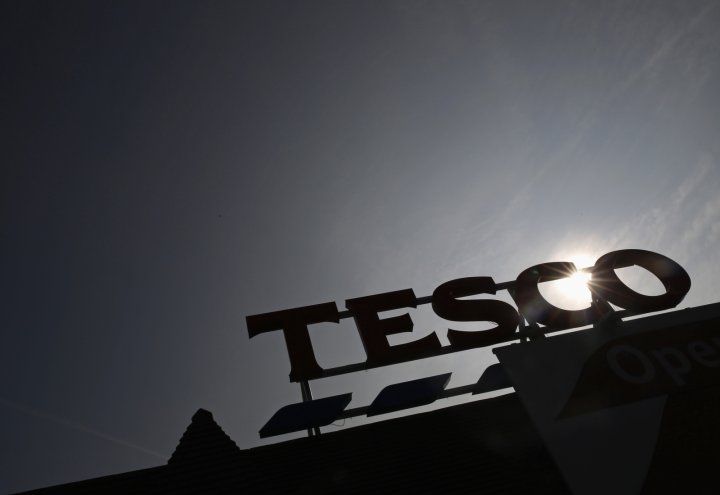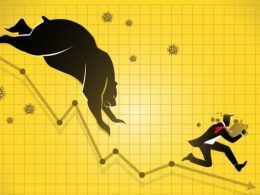Lessons From Warren Buffett's Tesco Mistake
by Todd Wenning, Clear Eyes Investing
As I read through the 2014 Berkshire Hathaway letter last weekend, one section stood out to me as being full of great investing lessons.
Here's the passage:
Attentive readers will notice that Tesco, which last year appeared in the list of our largest common stock investments, is now absent. An attentive investor, I’m embarrassed to report, would have sold Tesco shares earlier. I made a big mistake with this investment by dawdling.
At the end of 2012 we owned 415 million shares of Tesco, then and now the leading food retailer in the U.K. and an important grocer in other countries as well. Our cost for this investment was $2.3 billion, and the market value was a similar amount.
In 2013, I soured somewhat on the company’s then-management and sold 114 million shares, realizing a profit of $43 million. My leisurely pace in making sales would prove expensive. Charlie calls this sort of behavior “thumb-sucking.” (Considering what my delay cost us, he is being kind.)
During 2014, Tesco’s problems worsened by the month. The company’s market share fell, its margins contracted and accounting problems surfaced. In the world of business, bad news often surfaces serially: You see a cockroach in your kitchen; as the days go by, you meet his relatives.
While it was nice to hear Buffett's thoughts on his mistake with Tesco, I was surprised that he started the story at year-end 2012, as it's important to consider the full timeline of the investment.
Buffett started his position in 2006 and owned 3% of the company by the end of that year. At the time, Tesco was led by CEO Terry Leahy who, over a 14-year tenure, more than quadrupled the company's pre-tax profits and its store count. The company set its sights on international expansion in the U.S. and Asia and established a dominant share of the U.K. grocery market. Things were looking up for the business.
In June 2010, however, Leahy surprised the market by announcing his retirement. He was replaced by lifelong Tesco employee and head of international operations, Phil Clarke.
Tesco struggled over the next eighteen months, as the U.S. operations floundered and U.K. discount grocers began chipping away at Tesco's market share on its home turf. And despite a profit warning after a bad 2011 Christmas trading season, Buffett increased his stake in Tesco to 5.2% in January 2012. Many observers, including yours truly, thought that this investment amounted to a vote of confidence in Tesco management and its business prospects.
Around the same time, however, Neil Woodford, a well-known UK fund manager, announced he had sold his entire Tesco stake after owning shares for the better part of 20 years. He also laid out a compelling case for why Tesco had lost its way, wasn't practicing smart capital allocation, and was battling structural headwinds.
I point this out to illustrate that there were some well-founded and known concerns about Tesco's management and competitive advantages -- two core components of Buffett's investment philosophy -- in early 2012. I would be interested to know at what point between his increased investment in 2012 and when he began to "sour" on management in 2013 that Buffett began to rethink his Tesco thesis.
Here are some of the key lessons I take from Buffett's Tesco mistake:
- Every investor makes mistakes. Even Buffett. The key is to recognize them, correct them as quickly as possible, and learn from them.
- CEO changes matter. When a very successful CEO retires or leaves a company, it's time to reassess your investment thesis. Specifically, it's important to figure out the quality of the hand the new CEO has been dealt (i.e. how strong is the business?) and the skill with which the new CEO can play the hand (i.e. how strong is the CEO at capital allocation?)
- Doing nothing is doing something. It's important to be patient, of course, but even though you may not be buying or selling a stock, you're still making an active choice to hold. If you have concerns about key points in your thesis, doing nothing and hoping the problem goes away on its own isn't a good strategy.
Related posts:
- Top quotes from the 2013 Berkshire letter
- Learn to love your investing mistakes
- Why I sold this dividend stock for a loss
What I've been reading this week:
- Takes on the 2014 Berkshire letter - Cullen Roche, Interactive Letter (WSJ), Epicurean Dealmaker, Monevator, 25iq
- Revisiting a thesis on Constellation Software and a missed opportunity - Valueventure
- Scarcity - Reformed Broker
- Remembering 109-year old investor Irving Kahn - Telegraph
- The blind forecaster - Morgan Housel
- How the driverless car could impact the insurance industry - WSJ
- The man who could own Aviva France - FT Alphaville
- Competitive advantage and annual letter - Matt Brice
- There are no guarantees when it comes to life (or investing) - Abnormal Returns
- A trust that's held the same stocks for 80 years - ValueWalk
Stay patient, stay focused.
Best,
Todd
Copyright © Clear Eyes Investing














